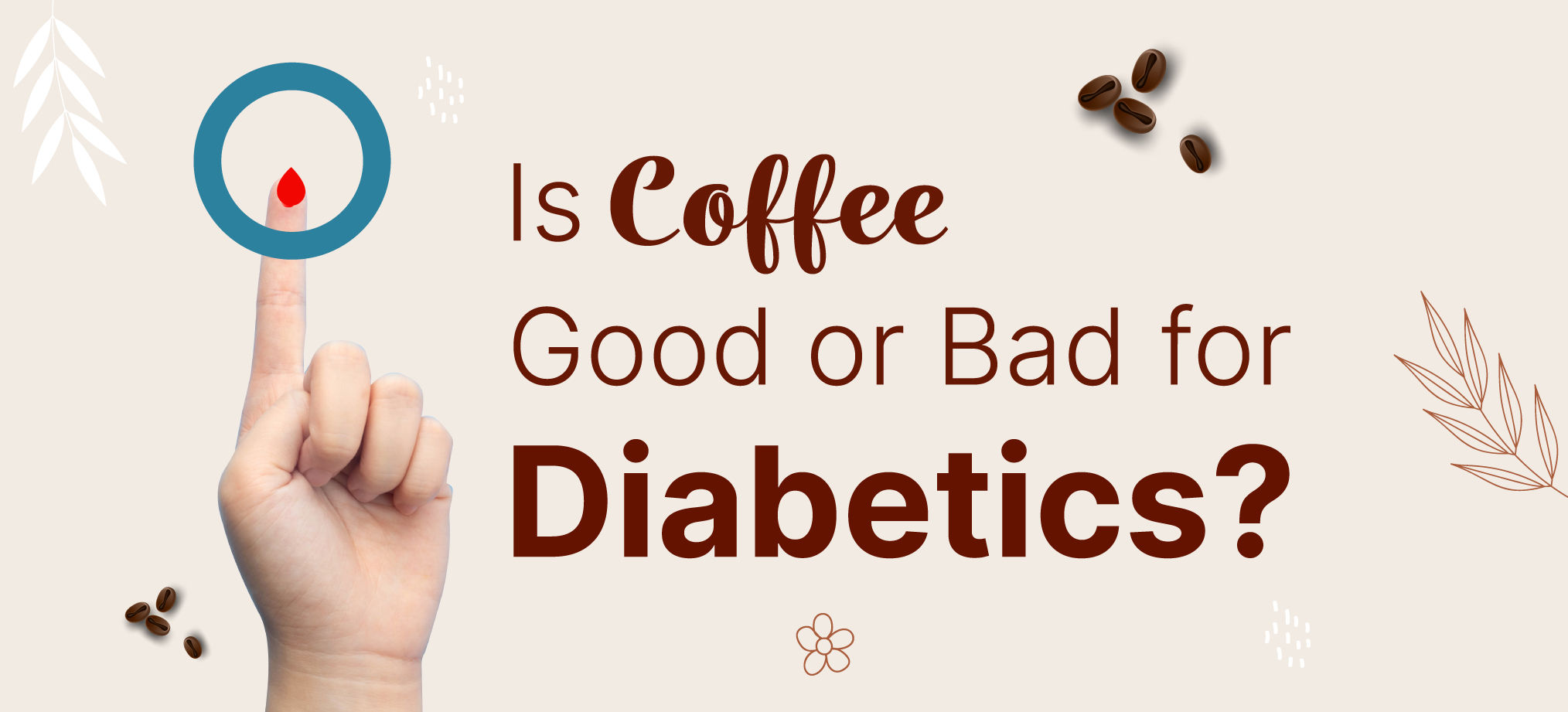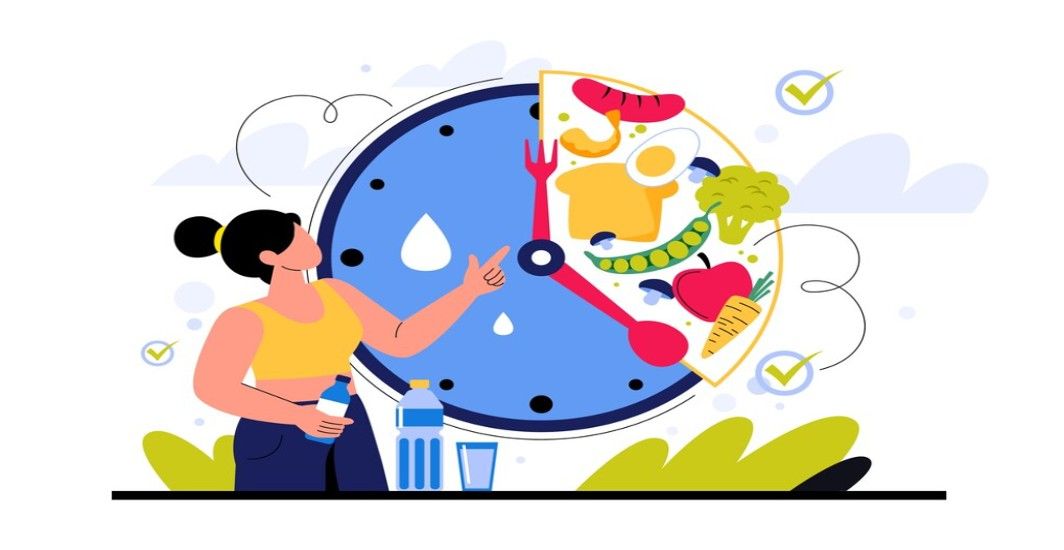Diabetes Management
Can Coffee Reduce The Severity Of Liver Disease In People With Type 2 Diabetes?
3 min read
By Apollo 24|7, Published on - 16 February 2023, Updated on - 11 December 2023
Share this article
0
0 like

Due to changing diets and lifestyles, there is an increase in type 2 diabetes universally. Around 6.28% of people worldwide are affected by type 2 diabetes and non-alcoholic fatty liver disease (NAFLD) has affected more than 50% of individuals with type 2 diabetes. As per research, coffee for the liver disease has proven to be a new medicine. Polyphenols and antioxidants like CGA (chlorogenic acid) found in coffee help to reduce the development of NAFLD and improve glucose intolerance. In this article, we will discuss NAFLD, type 2 diabetes and their response to coffee consumption.
What is Diabetes?
We need insulin to transport glucose from the blood into the cells of our body. In type 2 diabetes, our insulin function is impaired, so our blood sugar levels increase. If untreated or undetected, type 2 diabetes may progress to affect other organs like the heart, liver and kidney. However, this condition can be managed with lifestyle modification and proper medication.
Diabetics and Non-alcoholic Fatty Liver Disease (NAFLD)
Of people who have type 2 diabetes, at least half of them have non-alcoholic fatty liver disease. Diabetes is believed to raise the risk of NAFLD, a condition wherein even when you don’t consume alcohol, fat builds up in your liver. Fatty liver doesn't usually have symptoms, but it can lead to cirrhosis, liver cancer and heart and kidney disease.
The Link between Coffee and Liver Disease
Research suggests that coffee may reduce the severity of liver diseases, specifically non-alcoholic fatty liver disease (NAFLD) and cirrhosis. Here are some potential ways that coffee could help:
1. Lowering the risk of liver disease
Some studies have found that drinking coffee regularly is associated with a lower risk of developing liver disease. For example, a 2020 study published in the journal of Public Health found that people who drank three or more cups of coffee per day had a lower risk of NAFLD than those who drank less than one cup per day.
2. Reducing liver damage
Coffee contains compounds called polyphenols, which have antioxidant properties that may help to reduce liver damage caused by inflammation and oxidative stress. In a 2020 study published in the journal, researchers found that polyphenols in coffee improved liver function and reduced liver damage in rats with liver cirrhosis.
3. Decreasing the risk of liver cancer
Coffee consumption has been linked to a decreased risk of liver cancer due to the presence of components like kahweol and cafestol. A 2019 study published in the Journal of Hepatology found that coffee consumption was associated with a lower risk of hepatocellular carcinoma, the most common type of liver cancer.
It is worth noting, however, that the optimal amount of coffee consumption for liver health may vary depending on individual factors such as age, sex, and underlying health conditions. Also, consuming coffee in moderation and without added sugar or cream is recommended for overall health benefits. You should always talk to your doctor about your health and coffee consumption.
Consult An Apollo Diabetologist
FAQs
1. How are coffee and diabetes related?
Studies suggest that consuming coffee may modulate blood glucose levels and reduce the severity of liver disease prevalent in type 2 diabetes patients.
2. What are the constituents of coffee?
Caffeine is the main active component in coffee. Other compounds in coffee are cafestol, kahweol, chlorogenic acids and melanoidins.
3. How does coffee help liver disease?
Coffee has a high concentration of polyphenols and antioxidants that can reduce liver damage.
4. Why do people with diabetes usually have liver conditions?
Diabetes, a metabolic syndrome, affects almost every system in the body, including the liver.
5. Is it recommended to consume coffee when suffering from type 2 diabetes?
Yes, it is recommended that patients with diabetes take coffee with no or less sugar.
Consult An Apollo Diabetologist
You can also try the Apollo 24|7 Diabetes Self-Management Tool to log your sugar values, track patterns, know all about food nutrition and more.
Medically reviewed by Dr Sonia Bhatt.
Diabetes Management
Consult Top Diabetologists
View AllLeave Comment
Recommended for you

Diabetes Management
The Effect Of Intermittent Fasting On Blood Glucose Levels
Intermittent fasting can significantly improve blood glucose control and insulin sensitivity in people managing diabetes. However, it's important to remember that not all diets suit everyone. Consulting a doctor before starting new dietary regimens is always advised. For comprehensive diabetes management, consider enrolling in a program such as Apollo Super 6. This program offers personalized support, dietary advice, and much more to help manage diabetes effectively.
.jpg?tr=q-80)
Diabetes Management
Managing Diabetes in Pets: An Overview and Signs to Look Out For
Our furry friends can also fall prey to diabetes. With symptoms including increased thirst and urination, weight loss despite a normal or increased appetite, it's crucial to stay vigilant. Early detection followed by proper management like regular vet check-ups, insulin therapy, and dietary changes can help your pets lead a healthy life.
.jpg?tr=q-80)
Diabetes Management
The Diabetes-Sleep Connection: Impact on Blood Sugar Levels
Diabetes management is not just about diet and medication but also about understanding the role of sleep. It's essential to understand how sleep impacts blood sugar levels. Lack of sleep can lead to higher blood sugar levels, and conversely, unstable glucose levels can disrupt sleep. Ensuring adequate rest, consistent sleep schedules, and good sleep hygiene can help manage diabetes effectively.
Subscribe
Sign up for our free Health Library Daily Newsletter
Get doctor-approved health tips, news, and more.
Visual Stories

8 Fruits That are Incredibly Healthy for Diabetes
Tap to continue exploring
Recommended for you

Diabetes Management
The Effect Of Intermittent Fasting On Blood Glucose Levels
Intermittent fasting can significantly improve blood glucose control and insulin sensitivity in people managing diabetes. However, it's important to remember that not all diets suit everyone. Consulting a doctor before starting new dietary regimens is always advised. For comprehensive diabetes management, consider enrolling in a program such as Apollo Super 6. This program offers personalized support, dietary advice, and much more to help manage diabetes effectively.
.jpg?tr=q-80)
Diabetes Management
Managing Diabetes in Pets: An Overview and Signs to Look Out For
Our furry friends can also fall prey to diabetes. With symptoms including increased thirst and urination, weight loss despite a normal or increased appetite, it's crucial to stay vigilant. Early detection followed by proper management like regular vet check-ups, insulin therapy, and dietary changes can help your pets lead a healthy life.
.jpg?tr=q-80)
Diabetes Management
The Diabetes-Sleep Connection: Impact on Blood Sugar Levels
Diabetes management is not just about diet and medication but also about understanding the role of sleep. It's essential to understand how sleep impacts blood sugar levels. Lack of sleep can lead to higher blood sugar levels, and conversely, unstable glucose levels can disrupt sleep. Ensuring adequate rest, consistent sleep schedules, and good sleep hygiene can help manage diabetes effectively.


